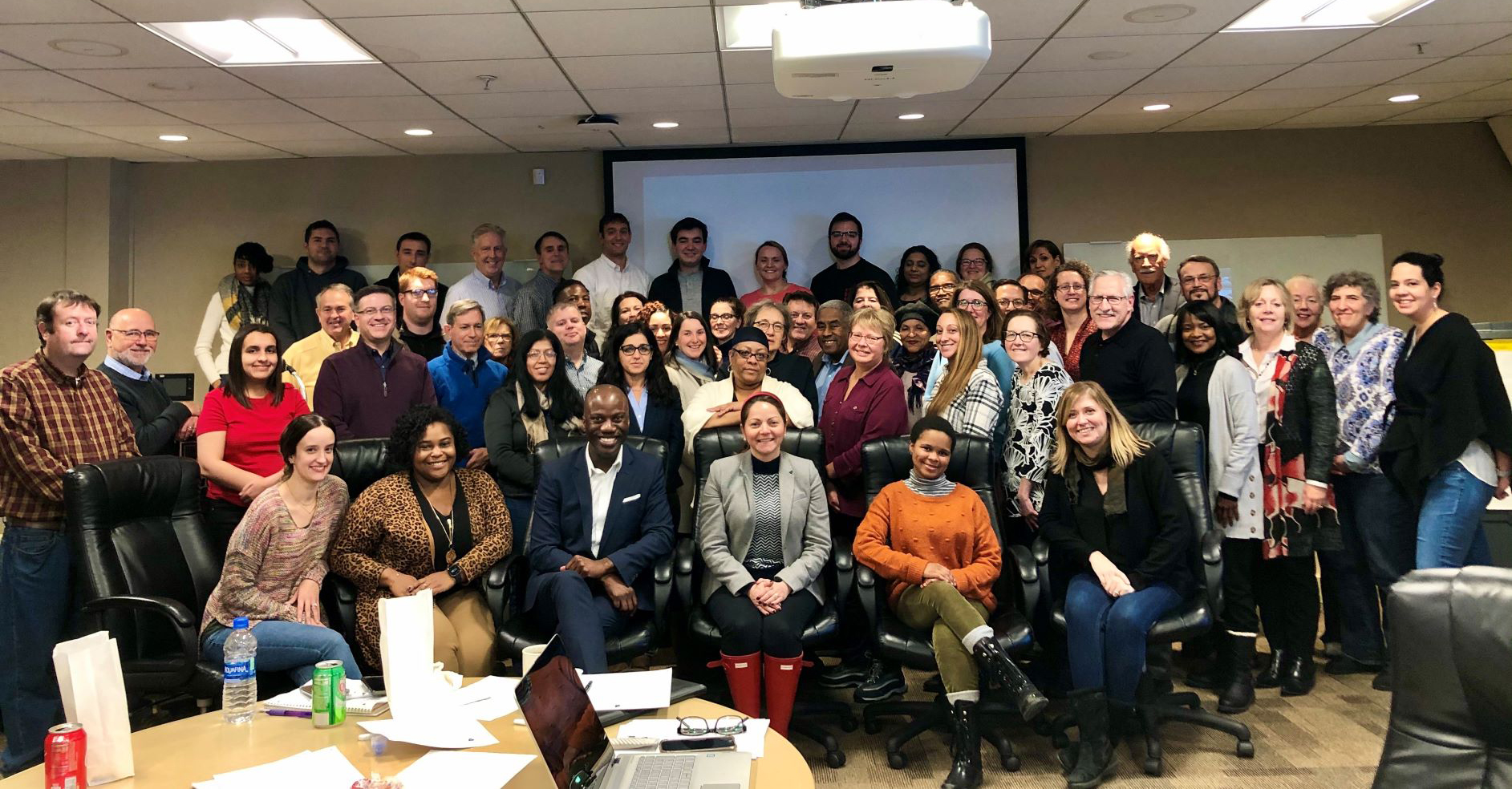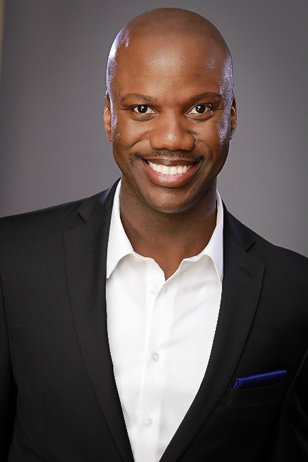
In December and January, the entire DHE staff devoted four full days to professional development in racial equity, facilitated by a nationally renowned academic who helped the staff strengthen their racial literacy and strategize to address vexing racial equity issues.
With the support of an Equity Leadership Acceleration (ELA) Grant from the Lumina Foundation, DHE partnered with the University of Southern California’s (USC) Race and Equity Center to offer professional development to all 60-plus agency employees in advancement of the Equity Agenda. DHE staff convened for a total of four days to complete eight of the Equity Institute modules developed by the Center and facilitated in an active learning format by Shaun Harper, the Center’s founder and executive director. The topics covered in these modules included:
Every member of the staff also contributed to one of six team projects focused on opportunities to strategically improve and advance racial equity either within the Department or through the Department’s externally facing work. Each team deliberately included a mixture of staff from different functional areas and ranks within the Department. The ongoing engagement with the USC Race and Equity Center will include 18 months of systematic assessment of each team’s progress and coaching on the projects, which are:

“The USC Race and Equity Center has had the pleasure of doing Equity Institutes with dozens of colleges and universities across the United States; this was our first time doing so with a state agency. I am deeply impressed that the Department spent 32 hours engaging in serious, substantive conversations about racial equity and developing thoughtful strategic racial equity projects.
Also praiseworthy is that every employee participated; the level of engagement across this four-day experience was among the highest I have ever experienced in my work with any group of professionals.
“Collaborating with Commissioner Carlos Santiago and Chief of Staff Elena Quiroz-Livanis on the design of such a rigorous, high-impact professional learning experience for the Department was especially rewarding. I am confident that outcomes of the Equity Institute are enduring; surely, this was not a one-time program that will have only short-term effects. Instead, the Department and every public postsecondary institution it serves across the Commonwealth will long benefit from the important work we started together in the Equity Institute.
“Also, I know for sure that the nation will learn much and derive tremendous inspiration from the half-dozen strategic racial equity projects the Department created during the Institute. These projects have high transformation potential, not only for Massachusetts, but for all of higher education. My colleagues and I are excited to provide ongoing coaching, assessment, and support to Department teams over the next 18 months as they launch these projects.”
Shaun R. Harper, Ph.D.
USC Race and Equity Center Executive Director
Provost Professor of Education and Business
Clifford and Betty Allen Chair in Urban Leadership
University of Southern California
As the final day of training came to a close, DHE Forward spoke with two DHE staff members for their reflections on this experience.
Robert (Bob) J. Awkward, Ph.D., Director of Learning Outcomes Assessment
Christine Williams, Assistant Commissioner for Regulatory Affairs & Strategic Initiatives
Bob: I was pleased that Commissioner Santiago launched this work for our Department because when we’re talking about leadership, it’s so important not to just tell people, “This is what you should all do,” but that the leadership walks their own talk. It’s certainly been helpful to me, as I’m out on campuses, to be able to say to people that we’re doing this work and that we’re doing it because we understand that we can’t lead this conversation if we’re not doing the same work ourselves.
Christine: These conversations have helped me think about how I do my work, and how I interact with both colleagues and the stakeholders I work with. It’s not only been a really good and helpful experience, but an essential one. I don’t think we could embark on this Equity Agenda without actually grounding ourselves as a Department before doing the work with our partners and campuses.
Christine: I would say that many of the ways that our students of color experience inequity are not necessarily explicit. We had substantial conversations around experiential factors, particularly campus climate, which profoundly influence outcomes for students of color. So often we focus our policy work entirely on improving students’ academic experience. But really, if students are experiencing overt racism on their campuses, constant microaggressions, and other forms of implicit bias among faculty and fellow students, then their experience can be emotionally crushing. The real challenge for us, then, is to think not only about how our policy may disadvantage students of color, but to also rethink how we might shape policy such that it is more deeply race conscious, and reflects a recognition and an attempt to mitigate the institutional and societal ways that consistently harm students of color.
Christine: My team’s project is focused on DHE’s policy audit protocols. I appreciate the fact that we are not only thinking critically and deeply about racial equity, but we are already infusing it into work that we will continue to do once we return to the Department. The project exercises are structured to walk us through the strategic planning for the most important components of the Equity Agenda work. Each project must show consideration to the design, implementation, resourcing, accountability, assessment, communication, and sustainability of the effort. These trainings gave us the space do substantial thinking and planning accomplished so we can begin, with appropriate urgency, moving the Equity Agenda forward.
Bob: One of the other benefits of this training has been the opportunity to work with people in the Department whom I’ve never met and whom I’ve now gotten to know over this time period. We’re going to be able to do more just because we have these relationships now established that will allow us to work across silos. I think there’s going to be a lot of hidden benefit that we’re going to enjoy over the months and years to come.
Bob: We have to be able to attract students of color to our institutions and ensure that they are able to persist, successfully graduate, and get into the workforce. It has enormous economic and civil implications for certainly our state, but also the country as a whole. We have to do something, and it’s clear that what we have been doing hasn’t worked. So, we can’t continue doing the same things and think we’re suddenly going to see data on these students’ outcomes go a different direction. On top of that, I would argue that the students of color and the experiences they’re having are the “canary in the mine,” and that in fact improving their experience is going to improve the experience of everybody in the system. And that would be to the benefit of the Commonwealth, in terms of having more students successfully complete postsecondary education and be able to join the workforce.